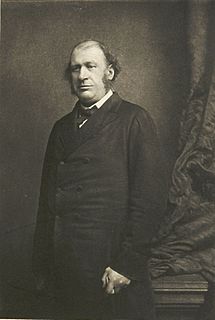A Quote by Walter Bagehot
The most melancholy of human reflections, perhaps, is that, on the whole, it is a question whether the benevolence of mankind does most good or harm.
Related Quotes
Resolved, that I will do whatsoever I think to be most to God’s glory, and my own good, profit and pleasure, in the whole of my duration, without any consideration of the time, whether now, or never so many myriad’s of ages hence. Resolved to do whatever I think to be my duty and most for the good and advantage of mankind in general. Resolved to do this, whatever difficulties I meet with, how many and how great soever.
The whole gamut of good and evil is in every human being, certain notes, from stronger original quality or most frequent use, appearing to form the whole character; but they are only the tones most often heard. The whole scale is in every soul, and the notes most seldom heard will on rare occasions make themselves audible.
Whether you believe in God or not does not matter so much, whether you believe in Buddha or not does not matter so much; as a Buddhist, whether you believe in reincarnation or not does not matter so much. You must lead a good life. And a good life does not mean just good food, good clothes, good shelter. These are not sufficient. A good motivation is what is needed: compassion, without dogmatism, without complicated philosophy; just understanding that others are human brothers and sisters and respecting their rights and human dignity.
To me this question whether liberty is a good or a bad thing appears as irrational as the question whether fire is a good or a bad thing. It is both good and bad according to time, place, and circumstance, and a complete answer to the question, In what cases is liberty good and in what cases is it bad? would involve not merely a universal history of mankind, but a complete solution of the problems which such a history would offer.
No religion ever appeared in the world whose natural tendency was so much directed to promote the peace and happiness of mankind. It makes right reason a law in every possible definition of the word. And therefore, even supposing it to have been purely a human invention, it had been the most amiable and the most useful invention that was ever imposed on mankind for their good.


































